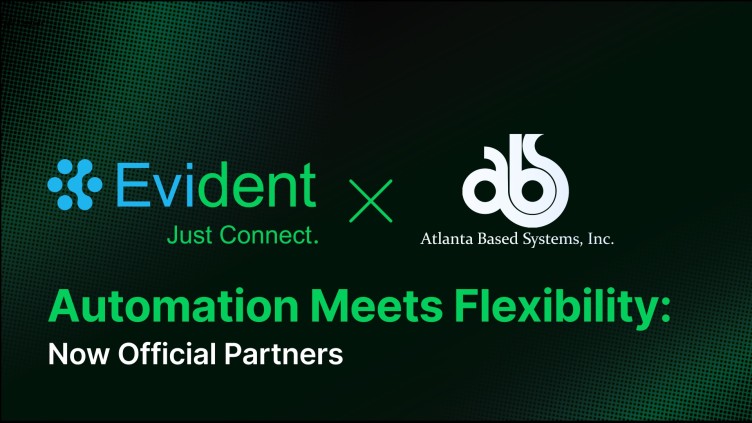In the dental laboratory industry, success in 2025 hinges on one critical factor: efficiency. With rising material costs, tighter turnaround times, and growing competition, labs of all sizes must optimize their workflows to thrive. Efficiency isn’t about cutting corners; it’s about working smarter to deliver high-quality restorations faster and more profitably. As we move through the year, this focus is proving to be a game-changer for labs looking to boost their bottom line and keep clients coming back. Here’s why efficiency matters now and how labs can make it work for them.
THE EFFICIENCY IMPERATIVE
The dental lab landscape in 2025 is more demanding than ever. Dentists are under pressure to see more patients, which means labs face shorter deadlines without room for error. At the same time, supply chain disruptions and inflation have driven up the cost of essentials like zirconia and resin, squeezing margins. For small labs, these challenges can feel overwhelming; for larger ones, they threaten scalability. Efficiency offers a way out—maximizing output with the resources at hand, reducing waste, and ensuring every step of the process adds value.
 This isn’t a theoretical goal. Labs that have prioritized efficiency are reporting real results: faster case completion, fewer remakes, and happier clients. Whether you’re a one-person shop or a multi-site operation, streamlining your workflow can be the difference between surviving and excelling.
This isn’t a theoretical goal. Labs that have prioritized efficiency are reporting real results: faster case completion, fewer remakes, and happier clients. Whether you’re a one-person shop or a multi-site operation, streamlining your workflow can be the difference between surviving and excelling.
PRACTICAL STEPS TO BOOST EFFICIENCY
Refine Case Management
Start with the basics: how cases move through your lab. Small labs can benefit from simple tracking systems—think whiteboards or affordable dental lab management software—to prioritize urgent jobs and avoid bottlenecks. Larger labs might invest in robust case management platforms that integrate with dental practices, providing real-time updates and reducing back-and-forth communication. The goal is visibility: knowing where every case stands cuts down on delays and missed deadlines.
Standardize Processes
Consistency is efficiency’s best friend. Document your workflows for common restorations—crowns, bridges, dentures—and train your team to follow them. For small labs, this might mean a single technician sticking to a checklist; for bigger ones, it’s about aligning multiple staff members. Standardization reduces guesswork, speeds up production, and makes training new hires easier, which is critical as the industry faces a shortage of skilled technicians.
Leverage Existing Tools
You don’t need a massive budget to work smarter. Small labs with basic digital tools—like intraoral scan compatibility or entry-level CAD software—can cut design time significantly. Larger labs already using 3D printers or milling machines should focus on maintenance and calibration to avoid downtime. The key is to get the most out of what you have before splurging on new gear.
Minimize Remakes

Nothing kills efficiency like redoing work. Invest time upfront in clear communication with dentists—confirming shade matches, occlusion details, or patient preferences—to get it right the first time. Small labs can build trust with a handful of loyal clients through personal follow-ups; larger ones can use quality control checkpoints to catch errors before shipping. Fewer remakes mean more time for new cases and less money lost on rework.
Optimize Inventory
Stockpiling materials ties up cash, while running out halts production. Small labs can keep it lean by ordering just enough for a week’s worth of cases, building relationships with reliable suppliers for quick restocks. Larger labs might negotiate bulk discounts but should track usage patterns to avoid overbuying. Smart inventory keeps cash flowing and production humming.
THE PAYOFF FOR LABS
For small labs, efficiency translates to survival. By shaving hours off each case, a solo technician can take on more work without burning out, turning a modest operation into a steady income stream. For mid-sized labs, it’s about growth—handling higher volumes without adding headcount or square footage. And for large labs, efficiency drives profitability, allowing them to undercut competitors on price or reinvest in expansion.
Clients notice, too. Dentists value labs that deliver on time, every time, and efficiency makes that possible. In a 2025 survey from Dental Lab Journal, 78% of dentists said reliability was their top factor in choosing a lab partner—above cost or even quality. A streamlined lab builds a reputation that keeps the phone ringing.
OVERCOMING BARRIERS
Efficiency isn’t free—it takes effort. Small labs might struggle with the time needed to rethink old habits, while larger ones face resistance from staff used to “the way things are.” Start small: tackle one process, like case intake, and measure the results. Success breeds buy-in. Budget constraints are real, too, but many fixes—like better organization or communication—cost nothing but discipline.
THE BOTTOM LINE
In 2025, efficiency isn’t optional—it’s the backbone of a successful dental lab. It’s not about flashy tech or big spending; it’s about making every minute, dollar, and material count. Labs of all sizes can implement these strategies today, seeing benefits in weeks, not years. As the industry evolves, those who master efficiency will lead the pack, delivering for clients and securing their own future. For lab owners and technicians ready to take control, the time to act is now—because in this business, efficiency isn’t just a strategy, it’s the edge you need to win.
LEARN MORE
Follow ABS on FaceBook and X . Please contact us directly if you’d like to learn more about Evolution dental lab management software.







 Customer Login
Customer Login

 This isn’t a theoretical goal. Labs that have prioritized efficiency are reporting real results: faster case completion, fewer remakes, and happier clients. Whether you’re a one-person shop or a multi-site operation, streamlining your workflow can be the difference between surviving and excelling.
This isn’t a theoretical goal. Labs that have prioritized efficiency are reporting real results: faster case completion, fewer remakes, and happier clients. Whether you’re a one-person shop or a multi-site operation, streamlining your workflow can be the difference between surviving and excelling.